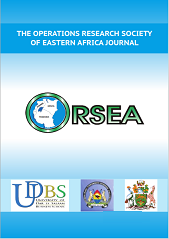Predicting Public Servants’ Organizational Citizenship Behavior through Work-Life Balance Initiatives: Evidence from Medics in Tanzania’s Government Hospitals
Abstract
Despite gaining substantial recognition and being highly advocated for adoption, the
concepts of work-life balance and organizational citizenship behavior are still under-
researched in the public service, especially in developingcountries. This study
examinestheinfluenceofwork-lifebalanceondimensionsoforganizational
citizenship behavior among medical staff members in Tanzania. A cross-sectional
survey was employed to collect data from 335stratifiedrandomly selected medics
working in hospitals operating under Local Government Authorities. The Covariance-
Based Structural Equation Modelling technique was used in data analysis with the
help of Amos software version 21. Results show that work-life balance initiatives have
a positive and significant influence on organizationalcitizenship behavior. The study
findings provide evidence of the applicability of the link between work-life balance and
organizational citizenship behavior, as postulated in Social Exchange Theory, in the
publicservicewhichisunder-researched.Thestudyimplicationfordifferent
stakeholders is presented at the end of the paper.
Keywords: Organization citizenship behavior, work-life balance, medics, healthcare facilities

